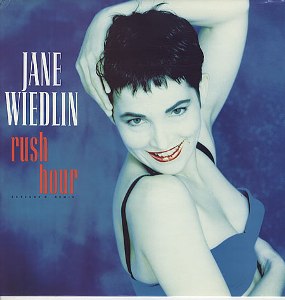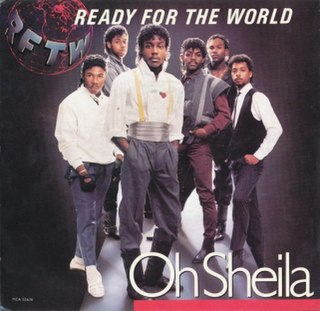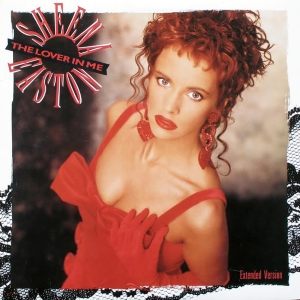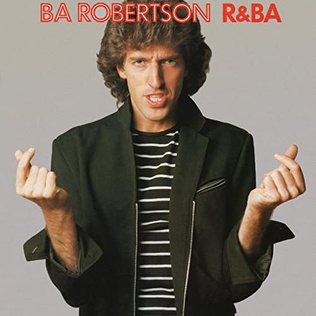
"Listen to Your Heart" is a song by Swedish pop music duo Roxette, which was originally released in Sweden in September 1988 as the second single from the duo's second studio album, Look Sharp! (1988). It was written by Per Gessle with former Gyllene Tider guitarist Mats "M.P." Persson. The song went on to become one of the most successful singles of 1989, reaching number one in both the United States and Canada around November 1989. The track was the first song to reach number one in the US without a commercially released 7-inch single.

"Opposites Attract" is a song recorded by Paula Abdul, featured on her debut album Forever Your Girl. It was written and produced by Oliver Leiber. Vocals on the song, in addition to Abdul, were provided by Bruce DeShazer and Marv Gunn, also known as The Wild Pair. "Opposites Attract" was the sixth and final single from the album, and achieved success in many countries, including the United States, Canada and Australia, where it was a number-one hit. Lyrically, the song is about a couple who love each other despite being different in almost every way possible.

"Voulez-Vous" is a 1979 song by the Swedish group ABBA, written and composed by Benny Andersson and Björn Ulvaeus. Agnetha Fältskog and Anni-Frid Lyngstad shared the lead vocals. It is the second track on the group's 1979 album of the same name. In the UK and Ireland, "Voulez-Vous" was released as a double A-side, though nearly everywhere else, "Voulez-Vous" was a single A-side. The double A side single is, as of September 2021, ABBA's 13th-biggest song in the UK, including both pure sales and digital streams.
Brian Alexander Robertson is a Scottish musician, actor, composer and songwriter. He had a string of hits in the late 1970s and early 1980s characterised by catchy pop tunes and jaunty humorous lyrics, including "Knocked It Off", "To Be or Not to Be" and "Bang Bang", a tongue-in-cheek commentary on famous historical and fictional couples. He wrote with Mike Rutherford of Genesis the Grammy-nominated and Ivor Novello Award-winning "The Living Years". It was a number one hit in the USA, Canada, Australia and Ireland and reached number 2 in his native UK. He has also written music for films and been a television presenter.

"You Win Again" is a 1987 song written by Barry, Robin and Maurice Gibb and performed by the Bee Gees. Released as a single in late 1987, it marked the start of the group's comeback, becoming a No. 1 hit in many European countries, including topping the UK Singles Chart—their first to do so in over eight years—and making them the first group to score a UK No. 1 hit in each of three decades: the 1960s, 1970s, and 1980s.

"Out of Touch" is a song by American duo Hall & Oates from their twelfth studio album Big Bam Boom (1984). The song was released as the lead single from Big Bam Boom on Thursday, October 4, 1984, by RCA Records. This song was their last Billboard Hot 100 number-one single, topping the chart for two weeks in December 1984. It also became the duo's fourteenth consecutive top 40 hit since 1980.

"Rush Hour" is a song by American musician Jane Wiedlin, taken from her second album, Fur (1988). It was backed by the album track "End of Love". The UK 12-inch single of "Rush Hour" includes an extended remix by Rusty Garner and an instrumental version.

"Oh Sheila" is a 1985 single by Ready for the World. The song reached number one on the Billboard Hot 100, the Hot Black Singles and the Hot Dance Club Play charts. It was the first of two chart toppers for the band on the Billboard R&B chart, preceding their 1986 number-one R&B hit, "Love You Down".

"Shot You Down" is a song by English electronic music project Audio Bullys featuring vocal samples from American singer Nancy Sinatra from her cover of the 1966 song "Bang Bang ". It became a No. 3 hit in the United Kingdom in mid-2005 and reached the top 20 in Australia and the Netherlands the same year. Sinatra is credited as being featured on the song since her vocal samples are an integral part of the song. The song is featured on the album Generation, released on 31 October 2005.

"Baby, I Love Your Way/Freebird Medley " is a song by American dance-pop band Will to Power. The song combines elements of two previously recorded rock songs: "Baby, I Love Your Way", a number-12 Billboard Hot 100 hit from 1976 by British-born singer Peter Frampton, and "Free Bird" by American Southern rock band Lynyrd Skynyrd, which reached number 19 on the Hot 100 chart in 1975. Suzi Carr is the female vocalist and a producer for the song.

"The Lover in Me" is a song by Scottish singer Sheena Easton for her ninth studio album of the same name (1988). Released as the album's lead single on 11 October 1988, the song became Easton's first top-20 hit in the United Kingdom after a seven-year hiatus. The song was also Easton's final top-10 single on the US Billboard Hot 100, peaking at number two on 4 March 1989, behind "Lost In Your Eyes" by Debbie Gibson.

"Let's Dance" is a 1987 single by British singer-songwriter Chris Rea. The song first appeared in an early form as a B-side to the "It's All Gone" single in 1986 and was re-recorded for his 1987 album, Dancing with Strangers, serving as its lead single. "Let's Dance" peaked at No. 12 on the UK Singles Chart and No. 81 on the US Billboard Hot 100. In New Zealand, it reached No. 2 for three nonconsecutive weeks, and it also peaked within the top 10 in Australia, Ireland, and South Africa.

"French Kissin" is a song by American singer Debbie Harry from her second solo studio album, Rockbird (1986). It was released on November 3, 1986, as the album's lead single. The song was written by Chuck Lorre, who would later create a series of successful sitcoms.

"Wouldn't Change a Thing" is a song performed by Australian singer-songwriter Kylie Minogue, recorded for her second studio album Enjoy Yourself (1989). The song was written by Stock Aitken Waterman, and was released on 24 July 1989 by Mushroom and PWL Records. The song was released as the second single off the album.

"Licence to Kill" is a 1989 song by American singer Gladys Knight, written and recorded for the James Bond film Licence to Kill, also from 1989. It was written by Narada Michael Walden, Jeffrey Cohen and Walter Afanasieff. Released as a single on May 30, 1989, the song became a top-ten hit in the United Kingdom, peaking at number six and becoming Knight's last charting solo single there. The song charted well in Europe, peaking atop the Swedish Singles Chart for eight weeks and reaching the top five in seven other European countries. It also peaked at number 79 on Canada's RPM Top Singles chart but did not appear on the US Billboard Hot 100.
"Goosebumps" is an pop song written by Terry Britten and BA Robertson and originally released by Robertson in January 1979 as the first single from his debut album Initial Success. The single flopped, but later that year, Australian pop singer Christie Allen covered the song, which peaked at number 3 on Kent Music Report in Australia and sold over 60,000 copies

Initial Success is the third studio album by Scottish musician BA Robertson, released on 7 March 1980 by Asylum Records. The album peaked at number 32 on the UK Albums Chart and several singles were released, including the top 10 hits "Bang Bang", "Knocked It Off" and "To Be or Not to Be". The album was reissued on CD on 12 May 2017 by Cherry Red Records and includes several of the singles' B-sides as well as songs performed live at the 2004 Edinburgh Fringe Festival.

Bully for You is the fourth studio album by Scottish musician BA Robertson, released on 27 March 1981 by Asylum Records. The album was not as successful as his previous album Initial Success, but managed to peak at number 61 on the UK Albums Chart. The album was reissued on CD on 12 May 2017 as an expanded edition by Cherry Red Records.

R&BA is the fifth and final studio album by Scottish musician BA Robertson, released in June 1982 by Asylum Records. Unlike his previous two albums, it failed to chart, despite the success of some of its singles. The album was reissued on CD on 12 May 2017 by Cherry Red Records which included several bonus tracks.

"Knocked It Off" is a song by Scottish musician BA Robertson, released in October 1979 as the third single from his debut album Initial Success. It became his second Top-Ten hit in the UK, peaking at number 8 on the Singles Chart. The song features a sarangi by Neil Sorrell. The title "Knocked It Off" means, in this context, to become a success somewhat unexpectedly. The lyrics criticise celebrity life, making references to pop and football fame.


















